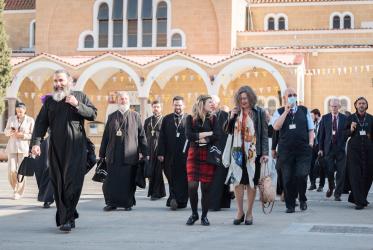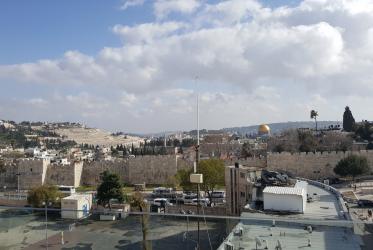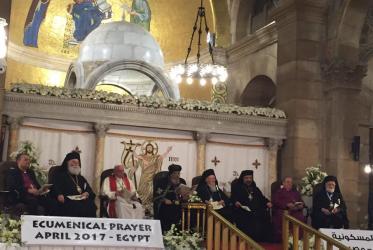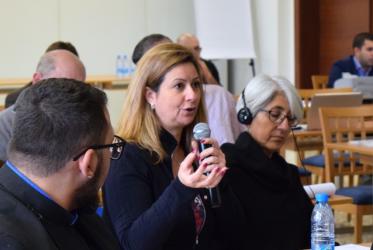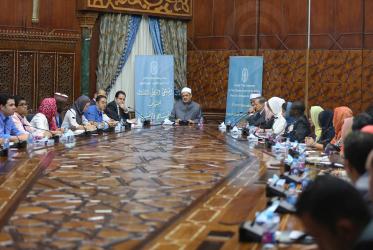Displaying 1 - 20 of 31
WCC Eco-School encourages youth to become eco-ambassadors
08 November 2018
#WCC70: A story of life
07 June 2018
Historic ecumenical prayer in Egypt for peace and unity
30 April 2017
Churches’ diaconal action in the Middle East analyzed
01 December 2016
WCC welcomes Grand Imam of Al-Azhar
01 October 2016
Seminar will address youth engagement, religion and violence
19 August 2016
WCC Executive Committee works toward a future of peace and justice
19 November 2015
